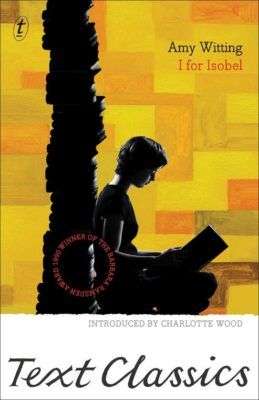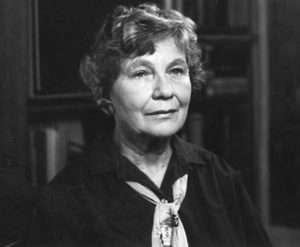I FOR ISOBEL by Amy Witting, Review: A novel in parts
Amy Witting’s classic novel I for Isobel initially had me enthralled, the inner workings of a 9yr old mind held charm, as did Witting’s original turn of phrase.

I for Isobel Synopsis
‘This was life: no sooner had you built yourself your little raft and felt secure than it came to pieces under you and you were swimming again.’
Born into a world without welcome, Isobel observes it as warily as an alien trying to pass for a native. Her collection of imaginary friends includes the Virgin Mary and Sherlock Holmes. Later she meets Byron, W.H. Auden and T.S. Eliot. Isobel is not so much at ease with the flesh-and-blood people she meets, and least of all with herself, until a lucky encounter and a little detective work reveal her identity and her true situation in life.
Winner, Barbara Ramsden Award, 1990
Genre: Literature, Historical, Drama, Classics
Disclosure: If you click a link in this post we may earn a small commission to help offset our running costs.
BOOK REVIEW
Like many other Australian classics, I’ve had Amy Witting’s I for Isobel on my reading list for a long time – equally intrigued by the novel’s premise and its author’s story. For more on the latter read this extract of Charlotte Wood’s introduction to this Text Classic edition.
The first half of I for Isobel had me enthralled. The inner workings of the mind of a 9-year-old child struggling with the concepts of right and wrong (and a parent often less in control of their emotional responses to situations than their offspring) held a particular charm, as did Witting’s original turn of phrase in describing them – she longed to be ‘someone safe behind a wall of her own building’ and reflected on her behaviour ‘in the days before she conquered enthusiasm’.
And while the circumstances of Isobel’s upbringing were unjust and saddening (‘at home they had a wild beast of poverty which broke loose now and then and filled the air with screaming’), I really connected with the resilient streak displayed and her use of books as a refuge.
She took out a book called The Adventures of Sherlock Holmes, thinking that adventures could never be dull…
… Birthdays, injustice, parents all vanished. She sat on the floor reading till the noice of cups and saucers in the kitchen warned her that the grown-ups would be coming in for afternoon tea, then she went to the little room where the and Margaret slept, next to their parent’s bedroom. It was too hot there, but if she went outside to the cool shade of the fig tree, Caroline and Joanne Mansell would come asking her to play with them, or Margaret would want her to go for a swim. Besides, it wasn’t hot in Baker Street.
What a lucky thing that she had found this new place in time to spend the birthday there. Presents didn’t matter so much, if life has these enchanting surprises that were free to everyone.
But then Witting moves Isobel forward episodically to young adulthood, where the impact of her emotionally repressed (and abusive) parental influence take on a much darker hue — a wound or be wounded approach that is often unlikeable and destructive. Sadly also, I’m not sufficiently well-read (in the classics) to fully appreciate all the literary references within this novel – if I was perhaps I would have found more light/meaning amidst the banter of the clique she finds herself drawn to.
However, after the distance I felt in I for Isobel’s latter half, I admired the striking simplicity and emotional power of Witting’s conclusion.
BOOK RATING: The Story 3.5 / 5 ; The Writing 4 / 5 — Overall Rating 3.75 / 5
Get your copy of I for Isobel from:
This review counts towards my participation in the Aussie Author Challenge 2017 and the 2017 Australian Women Writers Challenge
About the Author, Amy Witting

Amy Witting (the pen name of Joan Austral Fraser) was born in Annandale, an inner suburb of Sydney, in 1918. She attended Sydney University, then taught French and English in state schools. Beginning late in life she published six novels, including The Visit, I for Isobel, Isobel on the Way to the Corner Shop and Maria’s War; two collections of short stories; two books of verse, Travel Diary and Beauty is the Straw; and her Collected Poems.
She had numerous poems and short stories published in magazines such as Quadrant and The New Yorker. Her acclaimed short fiction is collected in the volume Faces and Voices. Witting was awarded the 1993 Patrick White Prize. Isobel on the way to the Corner Shop won the Age Book of the Year Award. Amy Witting died in 2001.
- Cate Kennedy speaks warmly of I for Isobel; of her own inspiration, and about Amy’s treatment and reception as an Australian woman writer, for The Wheeler Centre.
Other reviews of I for Isobel
“The book reaches a gentle crescendo when Isobel returns to the suburb she grew up in and comes face to face with an old foe. The encounter reduces her – and me – to tears. Left sobbing for the sorrow of having grown up in a family that failed her, the only comfort she receives is from the rock against which she rests her cheek, “as rough as a cat’s tongue and unyielding”. – Devoted Eclectic
“In the case of Isobel, we see her first a child trying to establish emotional barriers against her mother’s venom, and after crucial events, by the end of the novel, Isobel appears to have broken through some fundamental constricting membrane and is on the road to finding her own voice. ” – His Futile Preoccupations
